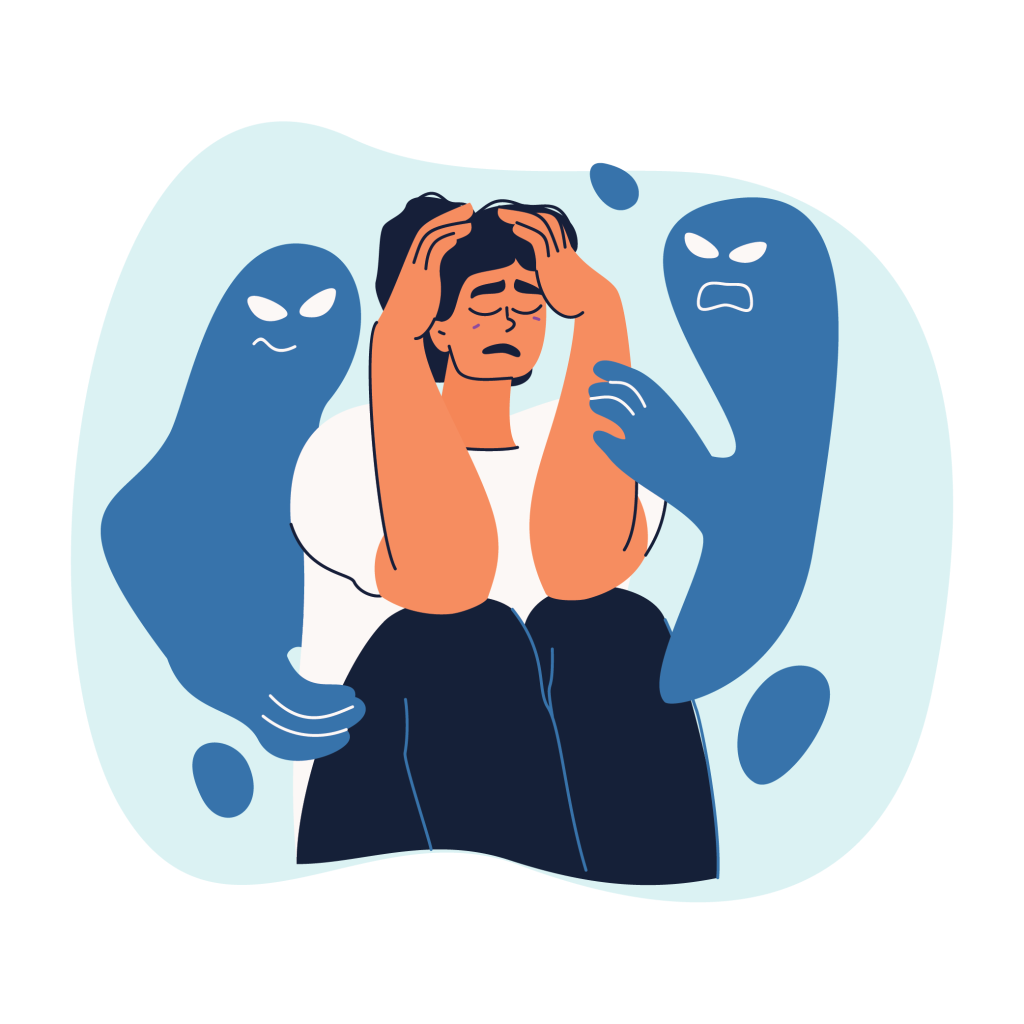Bipolar Disorder Treatment
in Atlanta
While changes in energy levels and mood are normal for most people, some people experience these energy and mood swings more frequently. When they do, they could have bipolar disorder. If you suspect you may have this condition or know you have it, personalized bipolar disorder treatment is available at Atlanta Integrative Psychiatry.


What Is Bipolar Disorder?
Bipolar disorder, also known as manic-depressive disorder, is a mental health disorder with extreme changes in mood, energy, and activity levels. People with these disorder experience periods of extreme happiness or excitement (manic episodes) followed by periods of intense sadness or hopelessness (depressive episodes). These episodes can last for days, weeks, or even months and can be debilitating.
What Causes Bipolar Disorder?
The exact cause of bipolar disorder is not entirely understood. However, there are several factors, such as genetic, biological, environmental, and psychological, that all play a role in the development of the disorder.
Other factors that could contribute include the following:
- Alcohol and substance use disorders.
- Insomnia and sleep problems.
- Excessive stress and anxiety.
Research suggests that gene variations or mutations, imbalances in brain chemistry, and traumatic or stressful life events may all be involved in triggering the condition.
Types of Anxiety Disorders
There are three different types of bipolar disorder based on the extent of the symptoms and episodes a person experiences.
Bipolar I disorder is characterized by at least one manic episode that may be preceded or followed by hypomanic or major depressive episodes. Manic episodes occur when there is an abnormally elevated or irritable mood, increased energy, and activity, talkativeness, racing thoughts, and decreased need for sleep. In severe cases, manic episodes can lead to psychotic symptoms like delusions and hallucinations.
Bipolar II disorder is diagnosed when a person has at least one major depressive episode and one hypomanic episode. Hypomanic episodes are similar to manic episodes but less severe. They are characterized by an elevated or irritable mood, increased energy and activity, and a decreased need for sleep.
Cyclothymic disorder is when someone has periods of both hypomanic and depressive episodes that last at least two years. The symptoms are not as severe as those of bipolar I or II, but they still interfere with daily functioning.
In addition to these three types of bipolar disorders, there are also other specified and unspecified bipolar disorders characterized by symptoms that do not meet the criteria for any of the other types of bipolar disorders. These can include rapid cycling between manic and depressive episodes, mixed episodes, and episodes of depression without manic symptoms.

- Signs and Symptoms of Bipolar Disorder
- Signs and Symptoms of Bipolar Disorder I
- Signs and Symptoms of Bipolar Disorder II
- Signs and Symptoms of Cyclothymic Disorder
- How Is Bipolar Disorder Treated?
The signs and symptoms of bipolar disorder vary depending on the type of disorder and the severity of the episodes. Generally, manic episodes are characterized by abnormally elevated or irritable mood, increased energy, and activity, racing thoughts, grandiose thoughts, and decreased need for sleep. Depressive episodes are characterized by feelings of hopelessness, low mood, loss of interest in activities, difficulty concentrating, and changes in appetite or sleep.
Manic symptoms:
- Abnormally elevated or irritable mood
- Increased energy and activity
- Racing thoughts
- Grandiose thoughts
- Decreased need for sleep
- Impulsivity
- Poor judgment
Depressive symptoms:
- Feelings of hopelessness
- Low mood
- Loss of interest in activities
- Difficulty concentrating
- Changes in appetite or sleep
- Suicidal thoughts
Manic symptoms:
- Abnormally elevated or irritable mood
- Increased energy and activity
- Racing thoughts
- Grandiose thoughts
- Decreased need for sleep
- Impulsivity
- Poor judgment
Hypomanic symptoms:
- Mildly elevated or irritable mood
- Increased energy and activity
- Racing thoughts
- Grandiose thoughts
- Decreased need for sleep
- Impulsivity
- Poor judgment
Depressive symptoms:
- Feelings of hopelessness
- Low mood
- Loss of interest in activities
- Difficulty concentrating
- Changes in appetite or sleep
- Suicidal thoughts
Manic and hypomanic symptoms:
- Abnormally elevated or irritable mood
- Increased energy and activity
- Racing thoughts
- Grandiose thoughts
- Decreased need for sleep
- Impulsivity
- Poor judgment
Depressive symptoms:
- Feelings of hopelessness
- Low mood
- Loss of interest in activities
- Difficulty concentrating
- Changes in appetite or sleep
- Suicidal thoughts
Bipolar disorder is typically treated with a combination of medication and psychotherapy. Medications such as mood stabilizers, antipsychotics, and antidepressants may be used to help manage symptoms. Psychotherapy can help individuals identify triggers and develop strategies for managing symptoms. Additionally, lifestyle changes such as getting regular exercise, avoiding drugs and alcohol, and getting adequate sleep can help manage the symptoms of bipolar disorder.
What to Expect During Our Outpatient Bipolar Disorder Treatment in Atlanta
At Atlanta Integrative Psychiatry, we provide comprehensive and evidence-based treatment for individuals struggling with bipolar disorder. Our comprehensive treatment plan includes medication management, TMS for Bipolar, psychotherapy, and lifestyle changes to help individuals manage their symptoms and achieve their goals.
During treatment, our team of psychiatrists, therapists, and mental health professionals will work closely with the individual to develop an individualized treatment plan that meets their unique needs. Additionally, our team will provide the support and guidance necessary to help individuals manage their symptoms and achieve their goals.
For further information about our bipolar disorder treatment in Atlanta or schedule an appointment today!
Sources:
Bipolar Disorder. (2017).
Living Well with Bipolar Disorder. (2022).
Newman, T. (2020). What to Know About Bipolar Disorder.
You are not alone. You deserve to get help.
Atlanta Integrative Psychiatry is an Industry leader in mental health treatment . Our team of top medical experts specialize in dual diagnosis treat and are committed to ensuring that each patient is treated as an individual.
Call us today, we're avialable 24/7.




